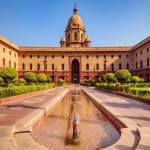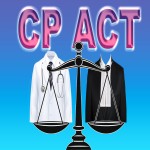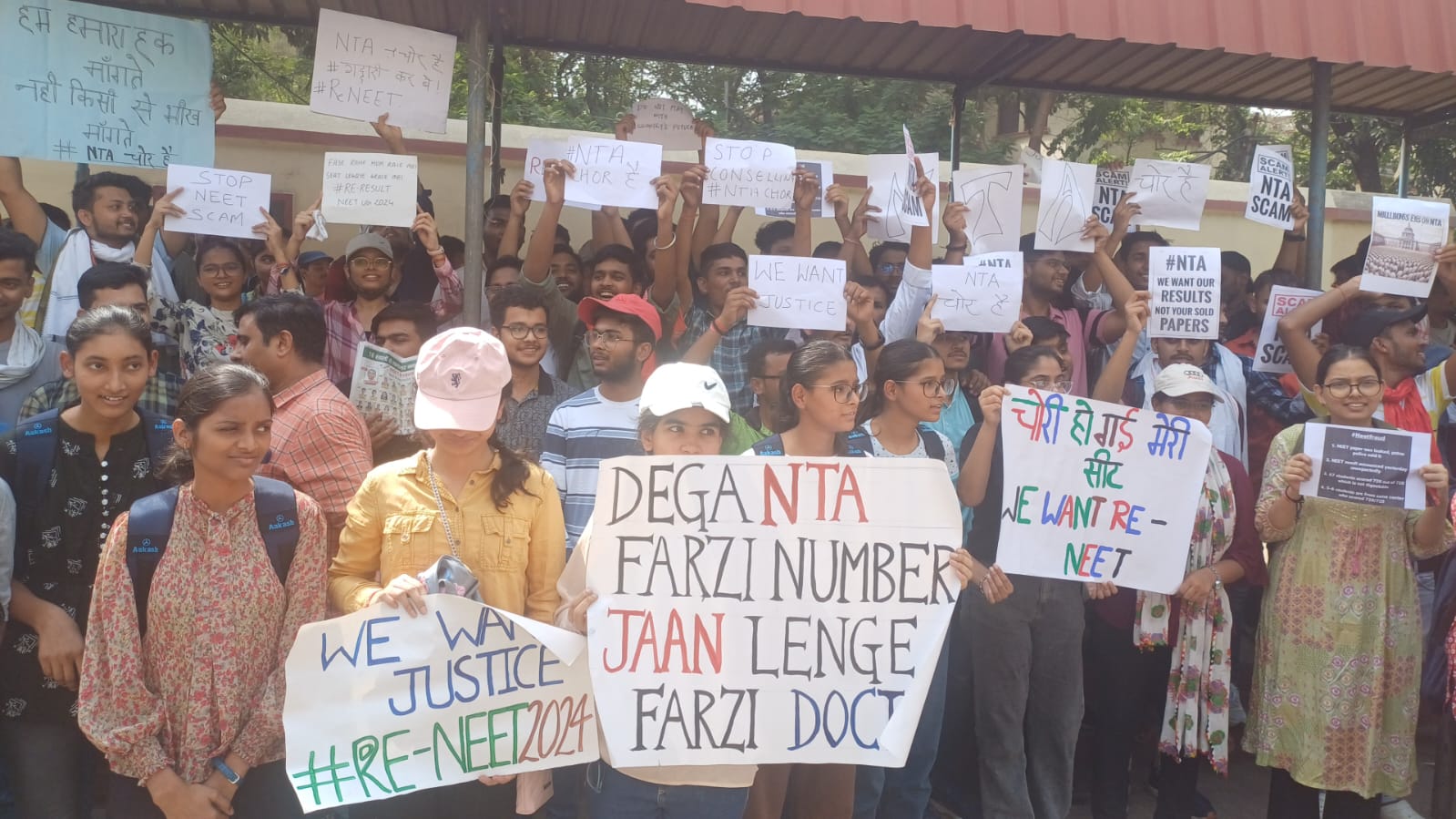
Students on Streets and Shameless System
Students across the nation have taken to the streets to protest against the glaring irregularities in NEET 2024. There is widespread anger among students and their parents, who believe that NTA's negligence and corruption led to a significant paper leak, resulting in a cut-off increase by 50-60 marks. NTA exacerbated the situation by awarding grace marks arbitrarily. In a public notice issued on June 6, NTA admitted to granting grace marks to over 1,500 students.
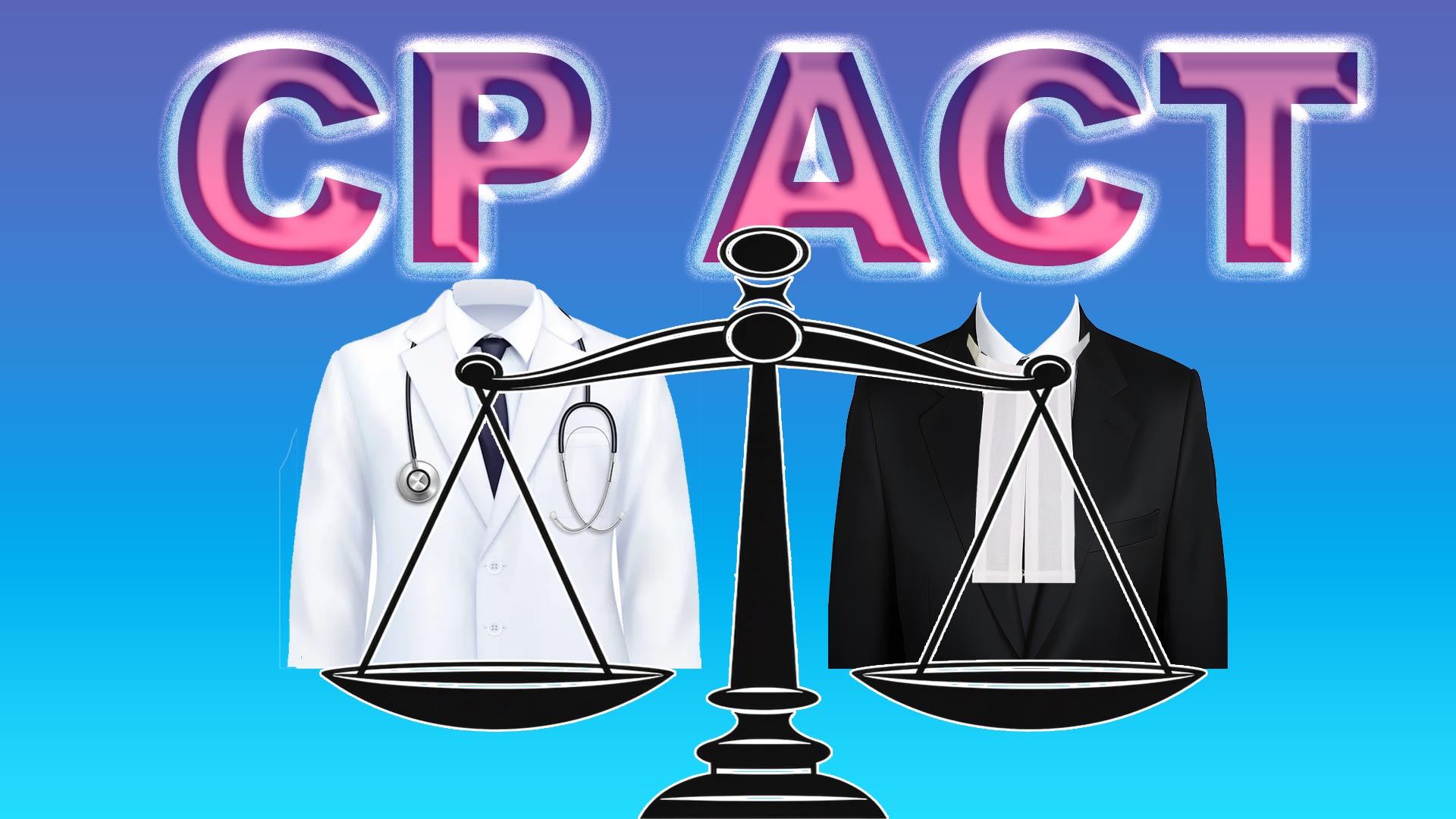
Statutory interpretation of Consumer Protection Act 2019: Professions, Legal and Medical, are not and cannot be included in the Act
Whenever there is ambiguity in any provision of a Statute, the Judiciary is required to interpret the language used. Using the method of ‘literal construction’ in the overall ‘context of scheme, scope and professed purpose’ of the Act, and applying various Rules of construction, the judiciary elucidates the likely intent of the Parliament. The principal aim of the judicial construction is the “Intent of the Parliament.” Statutes may be presumed to incorporate certain components, as Parliament is "presumed" to have intended their inclusion.
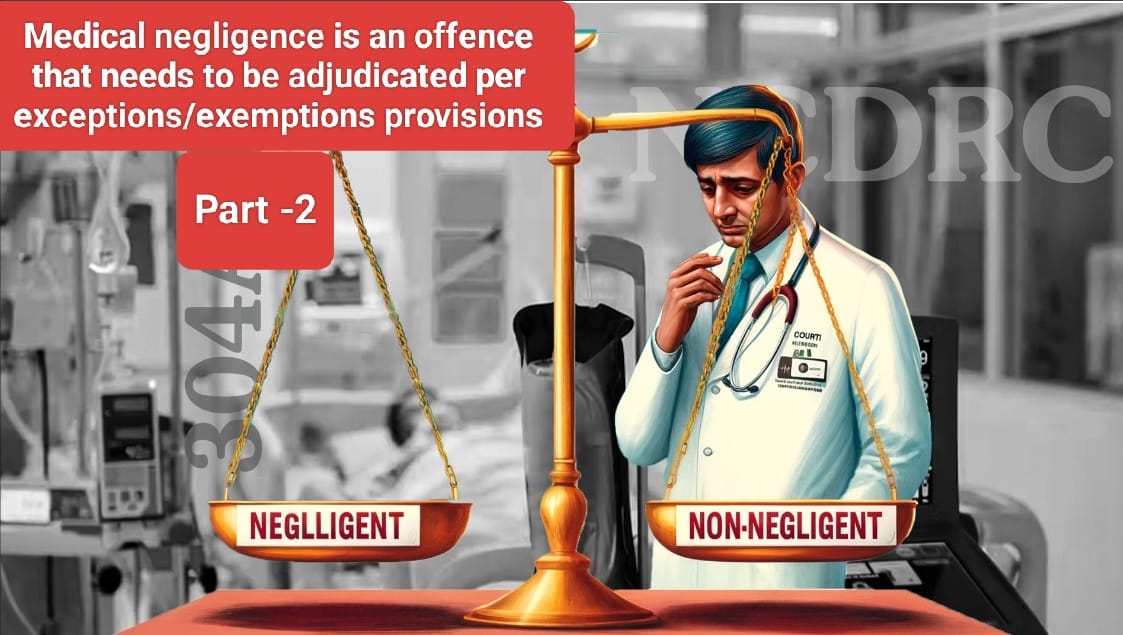
Medical negligence is an offence that needs to be adjudicated per exemptions provisions.
The Hon’ble Supreme Court in its recent judgment has extensively reviewed earlier Judgments on medical negligence to highlight how the emerging jurisprudence, taking cognizance of exemption clauses in Indian Penal Code (now Bhartiya Nyaya Sanhita 2023) has virtually decriminalized medical negligence.

Rights and Responsibilities of Patients
The Universal Declaration of Human Rights (1948) emphasizes the fundamental dignity and equality of all human beings. Based on this concept, the notion of Patient Rights has been developed across the globe in the last few decades. There is a growing consensus at international level that all patients must enjoy certain basic rights. In other words, the patient is entitled to certain amount of protection to be ensured by physicians, healthcare providers and the State, which have been codified in various societies and countries in the form of Charters of Patient’s Rights. The National Council for Clinical Establishments has approved that a patient and his/her representative has the certain rights with respect to the clinical establishments

Medical negligence is an offence that needs to be adjudicated per exceptions/exemptions provisions
Causing bodily harm/injury is an offence. However, in medical/surgical treatment of a disease, injury being its inevitable consequence, though technically an offence of ‘harm’, ‘injury’, ‘grievous injury’ or ‘homicide’, is not considered an offence by itself. In what exceptional circumstances a medical act becomes an actionable offence, is the bone of contest.
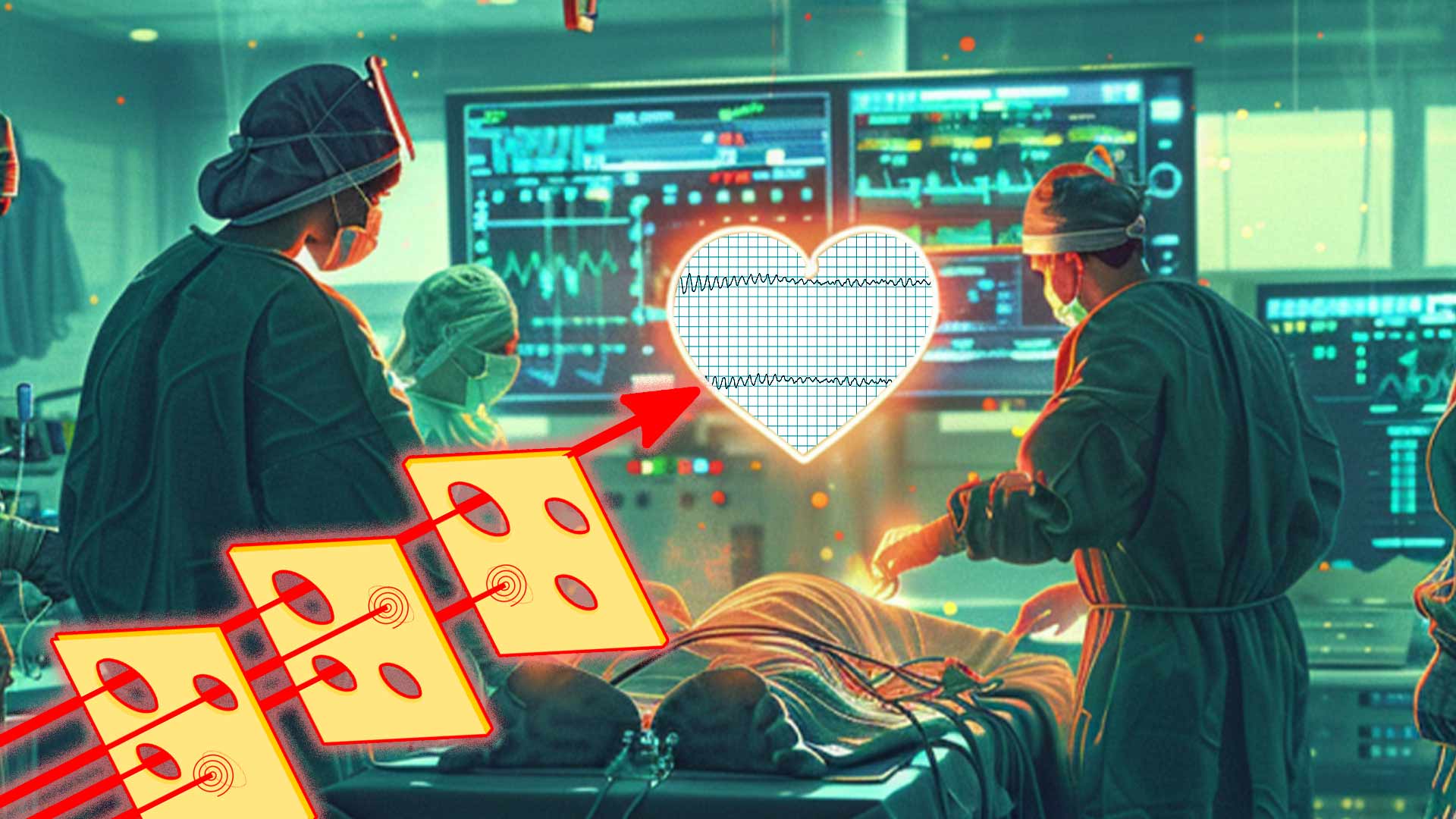
Understanding Medical Accidents through the Swiss Cheese Theory
Medical negligence is a complex issue that cannot be easily adjudicated in consumer courts. Even among medical experts, opinions can diverge significantly on the same case with the same evidence. This complexity is why the medical community seeks exemptions from trials in consumer commissions—not to evade accountability but to ensure that cases of alleged medical negligence are evaluated with the nuance and expertise they require.
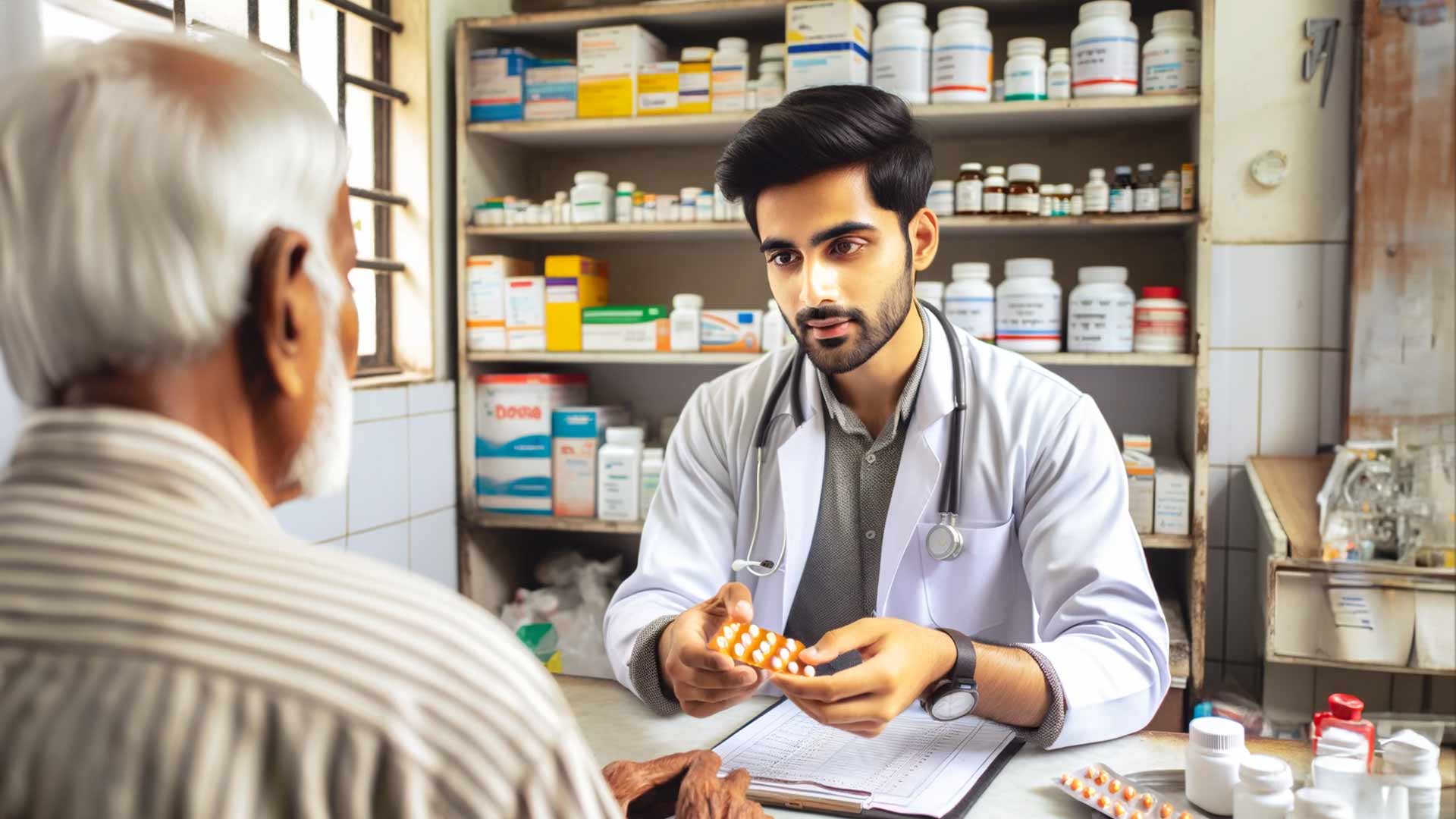
Doctors and dispensing of drugs
Doctors often face confusion when it comes to rules and regulations regarding dispensing or sale of drugs. Medicolegal expert and Lawyer Dr Gaurav Aggarwal answers the frequently asked questions related to sale of drugs by Doctors.
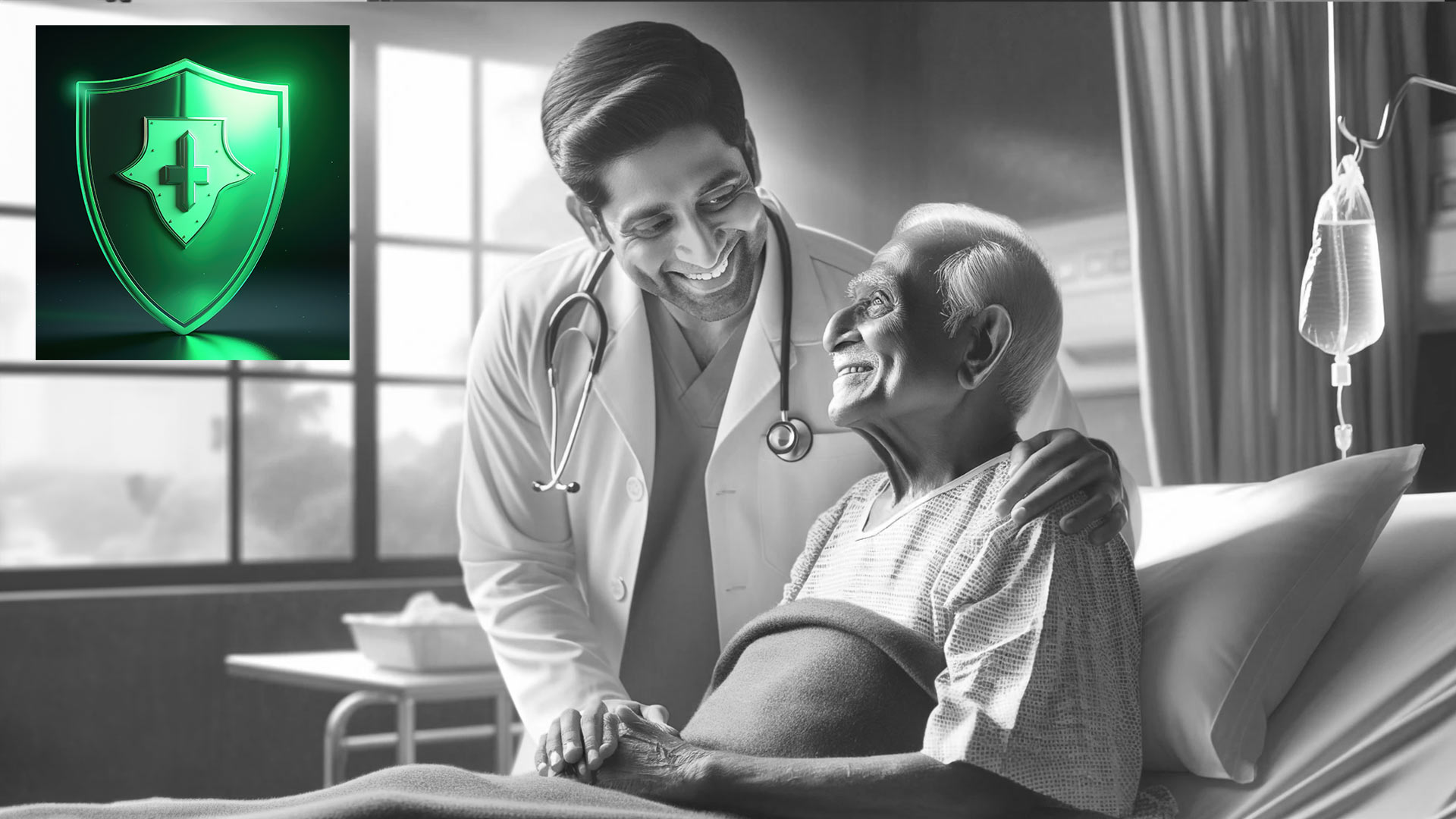
The Legacy of Honorary Doctors in Indian Hospitals: A Call for Revival
The legacy of honorary doctors in Indian hospitals is a testament to the commitment of medical professionals towards societal well-being. By reinstating this system, India has the opportunity to address critical healthcare challenges, improve the quality of medical services, and provide affordable healthcare access to all. As we reflect on the past, let us also look towards the future and consider the potential positive impact that a revival of the honorary doctor system could bring to the Indian healthcare scenario.

A comparative analysis of services rendered by Doctors and Advocates to their clients in relation to Consumer Protection Act
In the recent case related to inclusion/exclusion of legal services within the purview of the CP Act it was observed by the Bench that the service rendered by the Advocates practicing Legal Profession could be said to be the Service under “a contract of personal service,” so as to exclude it from the definition of “Service” contemplated under the Act. Medical community feels that when same arguments are applied to doctors as medical professional their services may also be considered under the category of "Contract of personal service"

A Comparative Analysis of Doctors and Lawyers as Professional in relation to inclusion of their services in the ambit of CP Act
There was not a whisper in the statement of objects and reasons either of the CP Act, 1986 or 2019 to include the Professions or the Services provided by the Professionals like Advocates, Doctors etc. within the purview of the Act. It is very well accepted proposition of the fact that Professionals could not be called Businessmen or Traders, nor Clients or Patients be called Consumers. It is also required to be borne in mind that the terms ‘business’ or ‘trade’ having a commercial aspect involved, could not be used interchangeably with the term ‘Profession’ which normally would involve some branch of learning or science. Profession as such would require knowledge of an advanced type in a given field of learning or science, or learning gained by a prolonged course of specialized study.Medical community feels that the broad submissions made by the learned Senior Counsels in the case related to inclusion of legal services in the ambit of Consumer Protection Act apply to doctors too. We have tried to compare submissions made by counsels of lawyers in the case with the views of medical community

